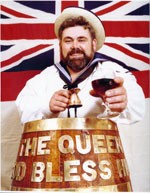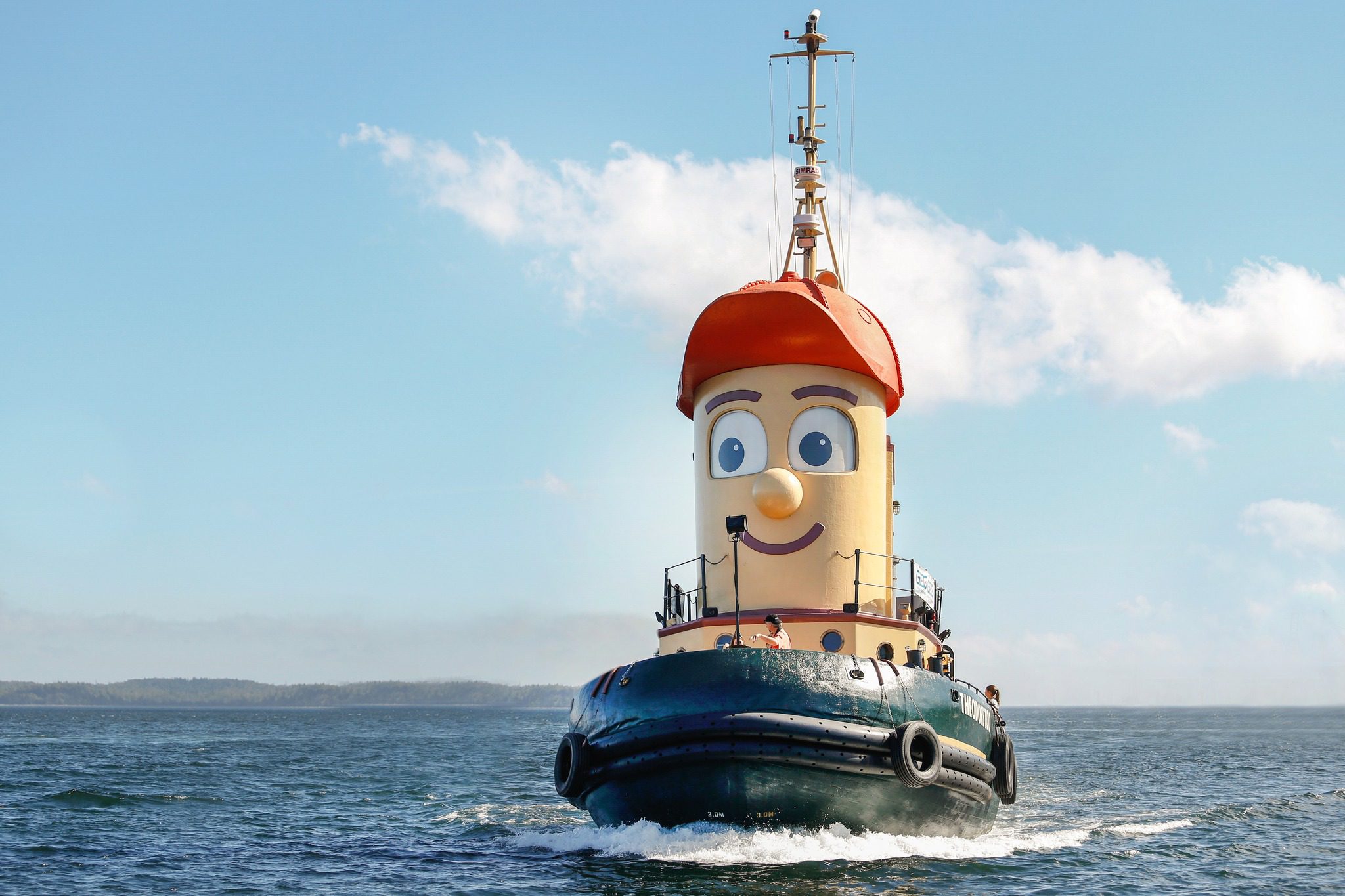Image courtesy Pusser’s Rum
Earlier in the year, the Ministry of Defense in the United Kingdom modified two of the Naval Toasts following the Loyal Toast in the Royal Navy after centuries of ‘tradition and privilege’. The amendments were necessitated by cultural changes that (slowly) have transpired over the course of centuries to reflect that women have been entering and moving up the ranks of the Navy, whether in the UK or the US and many more, and also women having a more frequent presence in the merchant marine worldwide as well.
The history of the Loyal Toast (‘The King/Queen, God Bless Him/Her!’) is long and its origin is lost in time but its purpose is self-explanatory; since Horatio Nelson’s era, it was common that the Loyal Toast be followed at mess dinners by several toasts that had to be formalized and used on a rotating basis, a separate naval toast for each day of the week:
On Sunday ‘To Absent Friends!’, on Monday ‘To Our Ships at Sea!’,
On Tuesday ‘To Our Men!’, and on Wednesday ‘To Ourselves!’
On Thursday ‘To A Bloody War or A Sickly Season!’
On Friday ‘To A Willing Foe and Sea Room!’
and on Saturday ‘To Sweethearts and Wives!’
The toasts were well-meaning and appeasing to good fortune and the self-serving individualism, but also reflecting the practices and the mores of the times – such as Tuesday’s toast ‘To Our Men!’ mirroring that all onboard were men, from the Captain down to the lowly boatswain. The toasts also were reflecting personal aspirations for promotion, like Thursday’s toast to ‘bloody war’ and ‘sickly season’, as engagement in battle usually meant high casualties that likely could translate to a promotion for the lucky surviving members of the crew. Likewise, Friday’s toast to a ‘willing foe’ and ‘sea room’, few navies had the power and capacity to engage the Royal Navy, and the crew who was looking for ‘prizes of war’, the wish was for a gutsy enough enemy to engage into a battle and get caught or clear the way allowing plenty of ‘sea room’ for the Royal Navy to sail over the world.
Besides the self-serving, ritualistic and cultural artifacts of such toasts, one has to keep in mind that all sailors were men, at their prime of their virility, away from women – whether wives, fiancées, mistresses or ‘women of pleasure’ – living under limiting living conditions in terms of space, victualing and privacy, under strictest laws and hierarchical rules, risking their lives on a daily basis whether battling the elements of nature, the frigates of the enemy or exploring unknown navigational routes. No wonder, that the above formal naval toasts were apt to ‘commentary’ during the formal salutes in male-dominated, rowdy environment where adrenaline and testosterone had to be kept on fine balance: Wednesday’s toast ‘To Ourselves’ was usually followed by “As no one else is Likely to Concern Themselves with Our Welfare’, while most famously (or notoriously) Saturday’s toast ‘To Sweethearts and Wives’ elicited from those in attendance ‘May They Never Meet!’ Captain ‘Lucky’ Jack Aubrey (Russell Crowe) in the movie ‘Master and Commander, The Far Side of the World’ is the one cheerleading this line with his officers.
During the past summer, two changes were imposed by the Ministry of Defense: changing Tuesday’s toast to ‘To Our Sailors!’ (instead of ‘to Our Men!’) and Saturday’s toast to ‘To Our Families!’ to reflect that men and women are almost equally likely to be serving the country or the Captain aboard a ship and the language had to be politically correct. There always will be those who are traditionalists and nostalgic of the past, and certainly certain high ranking officers objected to these ‘historical’ changes, but again, we have to adapt to the times. At least, officers in the Royal Navy have still maintain the tradition to be the only branch of the armed forces allowed to toast the Sovereign and proffer their naval toasts while sitting. No one really knows how the tradition started, but it is believed that a king onboard (possibly King Charles onboard the Naseby in 1660) bumped his head at a low beam while toasting, and made it a rule to allow for toasting while sitting. One has to remember that the height of the decks at sailing ships barely allowed for men to fully stand up in any case, and that the tables and the settees were fixed to the floor, and thus, rising to toast while maintaining a dignifying posture was almost impossible.
There were some formal variations to the naval toasts above, one case of which has as follows:
On Sunday, ‘To Absent Friends and Those at Sea!’
On Monday, ‘To Our Native Land, King/Queen and Country!’
On Tuesday, ‘To Our mothers / Health and Wealth!’
On Wednesday ‘To Ourselves, Our Swords and Old Ships (i.e. shipmates)!’
On Thursday, ‘To The King/Queen!’
On Friday, ‘To Fox Hunting and old Port / Ships at Sea!’, and
On Saturday, ‘To Sweethearts and Wives!’
Besides these ‘authorized’ toasts, there have been many more over the years. As expected, a great deal of them could be considered today sexists, or racists, or chauvinistic or immoral; again, no wonder since they reflect different ages and were prepared by men at the top of their virility having to be kept under short ‘leash’ and not knowing whether tomorrow may be their last day of their short life.
Herebelow are a few of the less rowdy naval toasts when raising a drinking glass, enjoying a chantey song, and wishes for the ships and the sailors about to embark on a long voyage, some metaphorical, some allegorical, some satirical, but always a refection of the weakness and desires of the human nature:
‘The wind that Blows,
The Ship that Goes,
And the Lass that Loves a Sailor!’
For friendship:
‘Here’s to Tall Ships,
Here’s to Small Ships,
Here’s to all the Ships at Sea.
But the best Ships are Friendships,
Here’s to You and Me!’
Or, with a variation to the last line: ‘And May They Always Be!’
Wishes when leaving for a trip:
‘May your Departures equal your Landfalls!’
or equally wishful:
‘May All (Y)Our Landfalls be Expected!’
And, for those triumphantly reaching their homeport, reflecting that escaped premature death at least this time:
‘Once Again, We Have Failed to Die!’
‘Ho! Stand to Your Glasses Steady
‘Tis all We Have left to Prize.
A Cup to the Dead Already.
Hurrah for the next That Dies!’
A common toast (or farewell) ‘Fair Winds and a Following Sea!’ or the full version ‘Fair Winds and Following Seas, and Long may Your big Jib Draw!’
At the age of the sail, having favorable winds in direction and neither too strong as in storms or non-existent as in the doldrums was crucial for competitive sailing. And the ‘following sea’ with her rolling waves coming from behind, the vessel was only contributing to a fast and smooth voyage. In Herman Melville’s Moby Dick, in 1851, “let me square the yards, while we may, old man, and make a fair wind of it homeward”; in Bowditch’s American Practical Navigator ‘following sea’ is defined as “a sea in which the waves move in the general direction of the heading.”
In present day when the wind is not as important for sailing and the diesel engine is more crucial to navigation, it has been paraphrased as
‘Calm Winds and Fair Seas!’
More appropriate for modern-day sailing:
‘May Have the Wind on Your Back!’
or
‘Keep the People in the Boat,
And the Water out of the Boat!’
or
‘Keep the Wet Side Down!’
or
‘Bottoms up to Your Drink but Never to Your Boat!’
or even,
‘”Here’s to Being in a Boat with a Drink on the Rocks,
Rather than Being in the Drink with a Boat on the Rocks!’
For a mild version of ‘kinky’ toasting, Popeye the Sailor Man sings:
I’m Popeye the Sailor Man
I live in a Garbage Can
I like to go swimmin’
With bow-legged women
I’m Popeye the Sailor Man!
which also is known as:
I love to go swimmin’
With bow-legged wimmin
And swim between their legs
Swim between their legs.
And sometimes, it was ‘bare naked women’.
In the movie ‘Jaws’, Quint toasts to “Here’s to Swimming with Bow-legged Women!’
There is no definition of a ‘bow-legged’ woman in the Oxford English Dictionary, but it’s believed that there were good at horse-riding with the connotation that they were easy to copulate with.
A more civilized version is the toast:
‘I Dream of Princesses and Gold,
but Farmers Daughters and Silver will Do!’
and the sailing song heard again in the movie ‘Master and Commander’,
Farewell and adieu to you, Spanish Ladies,
Farewell and adieu to you, ladies of Spain;
For we’ve received orders for to sail for old England, (or “…under orders…”)
On a more civilized, romantic note from “Windjammer Barefoot Cruise”,
Here’s to lying, cheating, stealing and drinking
If you’re going to lie, lie to save the life of a friend
If you’re going to cheat, cheat death
If you’re going to steal, steal the heart of the one you love
and if you’re going to drink, drink with friends both old and new!
Or the more metaphorically, A Windsong by Ray Paquette (1984):
As you set sail for new horizons
May a brisk fair wind be with you
May your journey provide that mixture of
Joy, contentment, love and excitement
That gives rise to zestful anticipation
Of new adventures together.
May you cheerfully weather
the unavoidable storms together
And steer as clear of all obstacles
As the currents allow
May God Bless and keep you
Bon Voyage

 Join The Club
Join The Club











